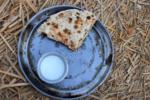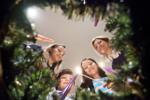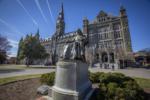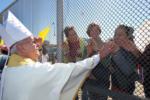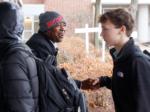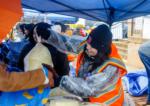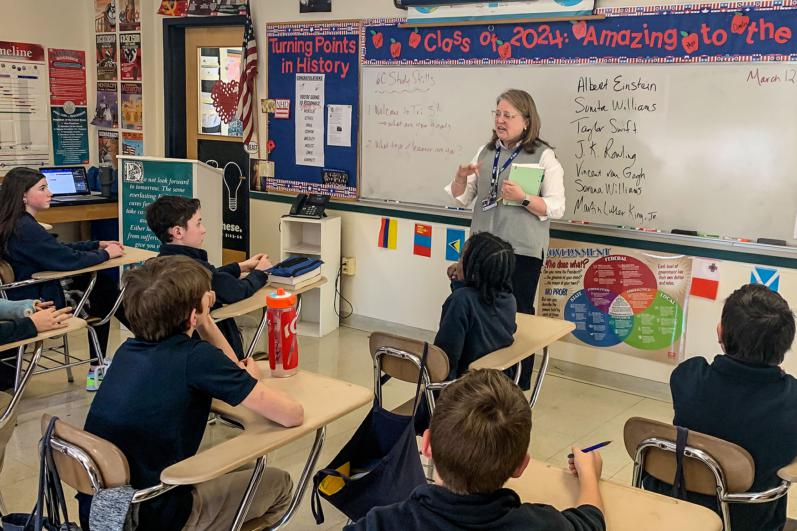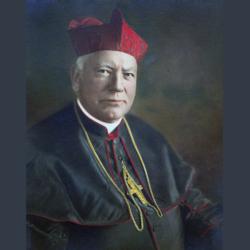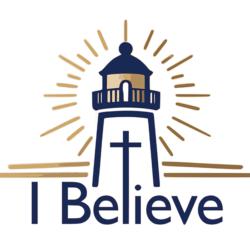Forming the Future: St. Joseph School, Needham, programs help middle schoolers build social, academic skills
NEEDHAM -- It's no secret that middle school is a time of great anxiety.
Students' emotions are more intense than they have ever been, so it's hard for them to identify them, let alone talk about them. The stressors of schoolwork and interpersonal relationships can be overwhelming, especially when social media is thrown into the mix. It's easy for students to end up feeling lonely and down on themselves, and at a time when friendship is crucial, kids may find themselves hanging out with the wrong crowd.
At St. Joseph School in Needham, sixth graders don't have to learn about middle school's challenges the hard way. All sixth graders are required to take Study Skills and Advisory, two classes which give them the tools to navigate their academic and social lives.
"The total focus is how we can help students reach their potential," Study Skills teacher Brigid Coyle told The Pilot in a March 11 interview.
Simply put, Study Skills class teaches students how to study. Sixth graders learn skills like time management and goal setting, as well as what style of learning works best for them. The class has been taught at St. Joseph School for over 20 years. This is Coyle's first year of teaching it, but she has already noticed "real growth" in her students since the school year began.
"As a Catholic school, we want to educate the whole child -- mind, body, and spirit," she said. "And so, to be the best person they can be, to be the best student that they can be, to be the best Christian that they can be, they have to know how to learn."
The class is continuously updated to adapt to the latest technology.
"Technology isn't all bad," Coyle said. "There's good technology out there. There are online flashcards that students can use, and they work really well. But we have to divide their time between the fun games, maybe Candy Crush or whatever the new thing is, and the study tools."
During Study Skills class on March 11, the first day of the third trimester, Coyle wrote a list of names on the board, including Albert Einstein, Taylor Swift, Vincent van Gogh, Serena Williams, and Martin Luther King, Jr. She asked the students to identify the particular strengths of each historic figure.
"Do you think Serena Williams could figure out Albert Einstein's math?" Coyle asked. "We're not casting aspersions on poor Serena, but she would probably have trouble with that level of math."
Coyle said that every person on the board was intelligent, but in different ways.
"Everybody, even the most impressive people in history, has different intelligences," she said.
Students then took an online quiz to figure out what type of learner they were. Some were audio learners, some were visual learners, and some were tactile learners, meaning that they learn best by doing. Others were a combination of multiple learning styles. The students brainstormed lists of study techniques that fit each learning style.
"Flashcards are like the king of studying," Coyle explained, because they are useful for multiple learning styles.
After that, it was time for Advisory class, taught by Glinda Meadows. At the beginning of every Advisory class, sixth graders grab a "feeling sheet" where they write about what they are feeling that day and why. Identifying and talking about feelings is a focal point of the class.
"A lot of people do journaling because it helps you understand what happened during the day and how you feel about it," said sixth grader Stephanie Reale. "Feelings are important because they help you be a better person."
Each advisory student has a "self-esteem and confidence workbook," which Meadows called a "toolbox" they can use in the future.
"We want them to be well-rounded individuals," she told The Pilot. "We want them to be able to be happy and healthy and positive, contributing members of the St. Joseph School community."
Students learn about anxiety and ways to combat it, including "box breathing," a slow breathing technique used by Navy SEALs to prevent them from panicking during battle.
Meadows told the class, "If it's good enough for the Navy SEALs to use it to calm down, it's good enough for us to use it to calm down."
Advisory class also teaches life skills such as choosing friends, breaking up toxic friendships, and thinking positively. Students write down positive affirmations to internalize such as "I'm capable of so much" and "Today I choose to be confident." They learn about setting goals using the acronym SMART (Specific, Measurable, Attainable, Relevant, and Time-based) and develop a "personal stress management plan." Stress relief methods include blowing bubbles, making hot chocolate, reading a book, going bowling, and writing letters to friends.
Halfway through the school year, the students began to think about their future, and took a "career interest inventory" to investigate possible careers. Meadows told them to ask their parents whether they enjoy their jobs and use their responses when thinking about what they want to do in the future.
Meadows said that the same values that students learn in the school chapel, such as gratitude to God, are also instilled in Advisory class. In the chapel, the sixth graders wrote a list of everything they are grateful for. Family and friends were at the top of almost every student's list.
"It's easy to list off all of the things that we have," Meadows said. "But you guys are talking about something that's invaluable. You're talking about people. You're talking about relationships. I'm really proud to hear that."

